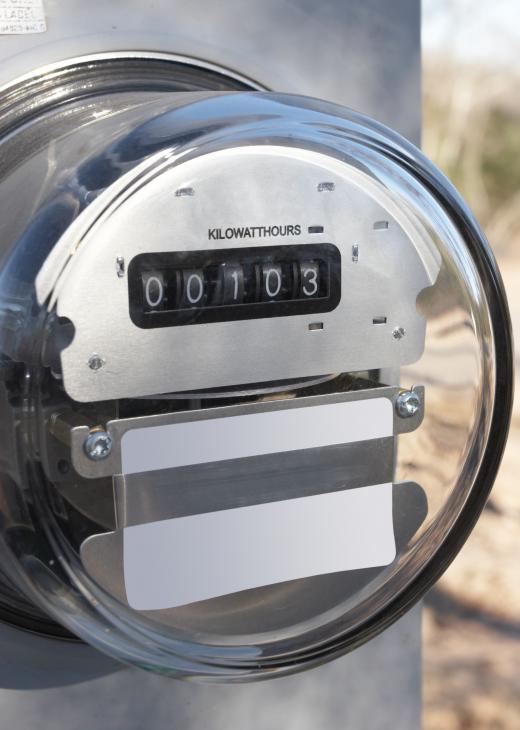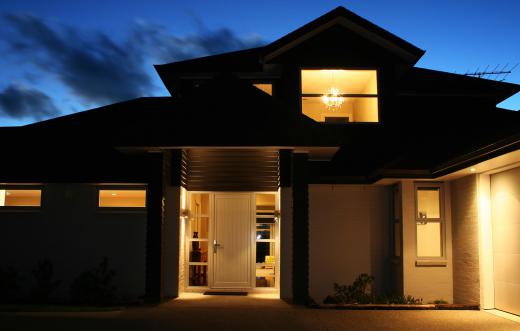Electric meters are devices which measure electricity usage, typically using the kilowatt hour as a unit of measurement. The classic use of an electric meter is in the monitoring of electrical usage at a particular address for the purpose of generating a bill, although there are other potential applications for electric meters. Depending on how a meter is used, it may be installed by a utility, usually for a fee, or it may be installed by a consumer.
Utilities use electric meters for the purpose of billing. A basic meter simply logs the amount of energy used by the address linked with the meter. A meter reader may need to travel to the address to read the meter, or the meter may report back remotely. Simple meters just tell the utility how many kilowatt hours of electricity were used over a set period, but more sophisticated meters also track the time of energy usage. Timing statistics can be useful for power plant management and for billing which is based on time of use.

Consumers can also use electric meters to monitor electricity usage. People who want to keep their bills down may meter individual devices in the home to find out how much power they are using, utilize an electric meter to see if a device is as efficient as the manufacturer claims, or use meters to track their electricity usage and look for areas in which they could reduce or adjust electricity usage. Many home devices are designed to plug into electrical sockets, with the consumer plugging the meter in, and then plugging the device to be metered into the electric meter.

Utilities are responsible for confirming that their electric meters are in working order, but they are not always quick to respond to concerns that a meter is not functioning properly, unless a customer reports that a meter is not registering electricity usage at all. People who notice radical changes in their electricity usage with no clear explanation should ask the utility to check the meter, or consider checking the meter themselves by turning power off at the main breaker and looking to see if the meter is still running.
Consumers may also want to be aware that older meters can develop problems, and some utilities will replace older meters for free in response to consumer concerns if a documented problem with the meter is present. Consumers interested in time of use billing may also need to apply for a replacement meter, as not all electric meters are capable of monitoring time of use.
Ever since she began contributing to the site several years ago, Mary has embraced the exciting challenge of being a About Mechanics researcher and writer. Mary has a liberal arts degree from Goddard College and spends her free time reading, cooking, and exploring the great outdoors.

